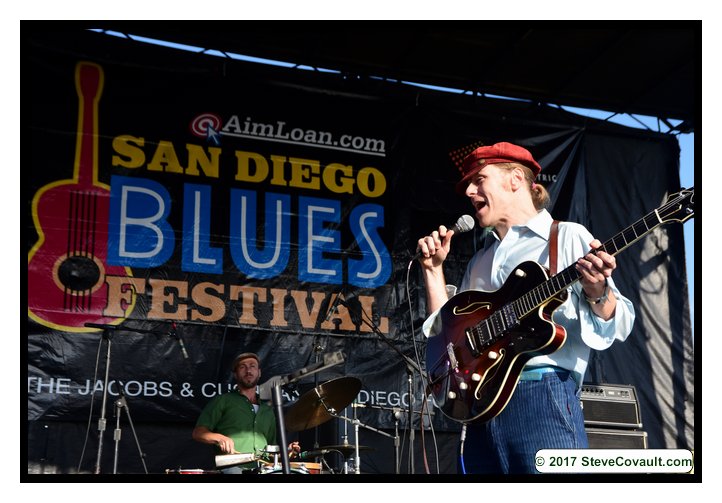It’s not exactly a new phenomenon.
Actors have been crossing over into the musical world for years. But this isn’t Tim Robbins’ first time at the rodeo.
I mean, forget the fact that Robbins’ father, Gil, was a member of 60s folksters The Highwaymen and toured with Harry Belafonte as part of the Belafonte singers. And forget that the elder Robbins also managed the Gaslight Club in Greenwich Village, so music has been an integral part of the family for decades.
If you remember that Robbins opened for Pearl Jam, cranking out punk-rock versions of folk tunes, while they both stumped for John Kerry on the campaign trail, it should be about all that you need to know. Sure Robbins’ Bull Durham character, Ebby Calvin “Nuke” LaLoosh, butchered Otis Reddings’ “Try A Little Tenderness,” and his turn as Ian “Ray” Raymond in the audiophile-classic High Fidelity found him pony-tailed, patchouli-ed, and with a penchant for sitar, but this ain’t the movies.
Robbins and his Rogues Gallery Band started touring on their self-titled debut in Europe and Australia before kicking off dates stateside on July 8.
He’ll be at Anthology Saturday night, but I recently spoke with him from San Francisco, where he was at the KFOG radio station about to do a live, in-studio performance.
Scott McDonald: Man, I get the last interview of the day. That’s not cool. I’m sure you’ve done a million of these by this late in the day.
Tim Robbins: Well, that’s your challenge now, isn’t it? But I’m sure you’re gonna wind up asking the most interesting questions of the day. You’ve just gotta believe.
SM: Let’s hope. Tell me a little about how the band came about.
TR: The band came about through Hal Willner. He’s a producer and a friend of mine. I had done some recordings of a few of my songs for archival purposes, and Hal asked to hear them. He thought they would make a good album and told me he had the perfect musicians for it. He said he was going to London in three weeks and asked if I wanted to join him in the studio for a few days. And that’s exactly what we did. That’s how it all happened.
SoundDiego
Music. Community. Culture.
SM: Was there a time before now that you considered doing this?
TR: No. But there were certainly opportunities before now. In 1992, I had done a movie called Bob Roberts where I played guitar and sang some songs that I wrote. There were people that wanted to do something then. I just wasn’t interested because it felt disingenuous and exploitive. I grew up with musicians and have a great respect for them and the process. I think you should really have something to say if you’re going to enter that creative arena.
SM: I know you had a musical upbringing. Until now, how much did it make it into your day-to-day life?
TR: I’ve always had my guitar with me on movie sets. In fact, several of the songs on the album were written in hotel rooms in different locations. We always had musical instruments around the house, and the kids were always picking up guitars. We played a lot of music together. It was an important thing for us.
SM: And it seems your son is also carrying on the family tradition.
TR: My son will be opening some East Coast dates for us in New York, Pennsylvania, and Washington. But we have done shows together before. We’ve done a Woody Guthrie tribute show. And they asked me to do a Pete Seeger tribute a few years ago, and I asked Miles to go with me and sing ‘Michael Row Your Boat Ashore.’ He said yes, but asked me where it was going to be. I told him it was Madison Square Garden, and he was like, “what?!” I mean, he was only 16 years old. I told him his granddad sang that song on stage for years. He ended up learning how to sing it w/ Rufus and Martha Wainwright. It was great.
SM: I read that this album was born out of disappointment.
TR: The original recording of the demo happened after a movie fell apart. That’s how Hal was able to listen to the music. But I don’t agree with that characterization at all. The songs were written about the celebration of life. They were written about love.
SM: Do you feel that when you perform?
TR: Once you walk up on stage, it’s like you’ve entered a whole new latitude. It’s always a lot of fun.
SM: Is this something that you hope can be as much a part of your life as acting is?
TR: I would love for that to happen. I really hope it does and look forward to it.




